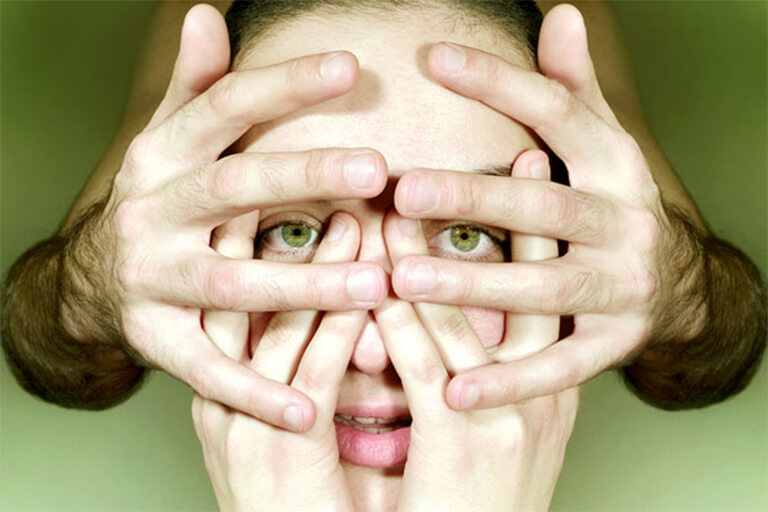Muslim Voices — Honor Killings

Audio transcript:
0:00:06:>>ROSEMARY PENNINGTON: Welcome to Muslim Voices. I'm your host Rosemary Pennington. The United Nations Population Fund estimates that every year 5000 women die - victims of so-called honor killings. The women are murdered by family members for doing things that are seen as degrading to family honor. Those things can include everything from adultery or divorce, to refusing an arranged marriage, to being raped. These killings take place all over the world, although a number of them do happen in Muslim countries. And in the West, it seems as though every few months there is a new story about a Muslim father threatening a daughter who's become too westernized. What these stories often overlook is that there is nothing Islamic about an honor killing.
0:00:56:>>RAFIA ZAKARIA: There are other aspects of Islam that admittedly women are working to reform - of Islamic law. But this isn't one of them.
0:01:04:>>ROSEMARY PENNINGTON: Rafia Zakaria is PhD candidate at Indiana University studying Islamic law.
0:01:10:>>RAFIA ZAKARIA: That is actually in this podcast one of the you know black and white statements I can make. There's absolutely nothing within Islamic doctrine either in the Koran or in the Hadith or even in any secondary source that say that honor killing is something that Muslims should do or can do or that is lawful.
0:01:31:>>ROSEMARY PENNINGTON: Zakaria also a human rights activist. She says honor killings aren't about religion at all. Women in societies where honor killings take place are seen as commodities. They're vessels that embody the family honor.
0:01:45:>>RAFIA ZAKARIA: So the actual act for which she is being punished - or there might not even actually be an act for which she's being punished - but the act essentially is an act of defending family or tribal honor where someone close to her will kill her as a way to assert a reclaiming of the family's position in society.
0:02:06:>>ROSEMARY PENNINGTON: Zakaria says honor killings have become linked with Islam because they do take place in some Muslim societies. When they do happen or are suspected of happening, the media are quick to pick up the story and Islam becomes framed as a religion that condones the practice.
0:02:24:>>RAFIA ZAKARIA: The fact is that everything that happens in Muslim societies is not Islamic. But the problem is that because the Muslim world is under so much scrutiny, these iterations of horrific crimes become denominators of what - you know what Islam is or what Muslim society is.
0:02:44:>>ROSEMARY PENNINGTON: There are people working in Muslim countries to stop honor killings. And Zakaria says a number of those people are conservative or fundamentalist in nature, the kinds of groups often accused of condoning the practice.
0:02:58:>>RAFIA ZAKARIA: Ironically in a lot of these countries it's been revivalist Islamic movements that have been talking and been the most vocal against honor killings. So you know in Pakistan and in other - in Jordan also and other - they're pious movements. They're not necessarily political Islamic movements. So they've - that's one of the things that they've been working very strongly against.
0:03:22:>>ROSEMARY PENNINGTON: The difficulties, Zakaria says, is in those places where a particular interpretation of Islamic law leaves no room for the punishment of those who commit honor killings.
0:03:33:>>RAFIA ZAKARIA: In some societies like Saudi Arabia for example also in Pakistan, you have certain iterations of Islamic law and you know - and even these are debatable on whether or not they should be in the form they're in - but which essentially say that if there is a martyr, any martyr, and that the family of the perpetrator of the crime or the perpetrator of the crime himself can essentially pay the victim's family blood money in lieu of being prosecuted.
0:04:05:>>ROSEMARY PENNINGTON: Honor killings are often used in the West to frame Western societies. In the West, honor killings don't take place, at least not among Westerners. It's an old trope - painting East as barbaric, West as civilized. And yet Zakaria points out, since the recession, instances of domestic violence have gone up 72% in the United States. Zakaria is quick to say she's not equating domestic violence with honor killings, but the cause of both is similar. It's the fact that women who are victims of such violence have no voice, have no power. And no amount of reform will matter if that issue is ignored.
0:04:50:>>RAFIA ZAKARIA: I don't want to promote an Orientalized version of Muslim women as you know powerless and subjugated and hence subject of honor killings. But at the same time, it's important for me to also bring attention to the fact that the girls who are being killed are in their society powerless and are horribly repressed and essentially killed for no reason at all.
0:05:25:>>ROSEMARY PENNINGTON: This has been Muslim Voices, a production of the Voices and Visions project in partnership with WFIU public media from Indiana University. Support comes from the Social Science Research Council. Music was provided by Animus. You can find Muslim Voices on Twitter and Facebook, and subscribe to our podcast in iTunes. There is also a blog at muslimvoices.org.


 IU Global
IU Global